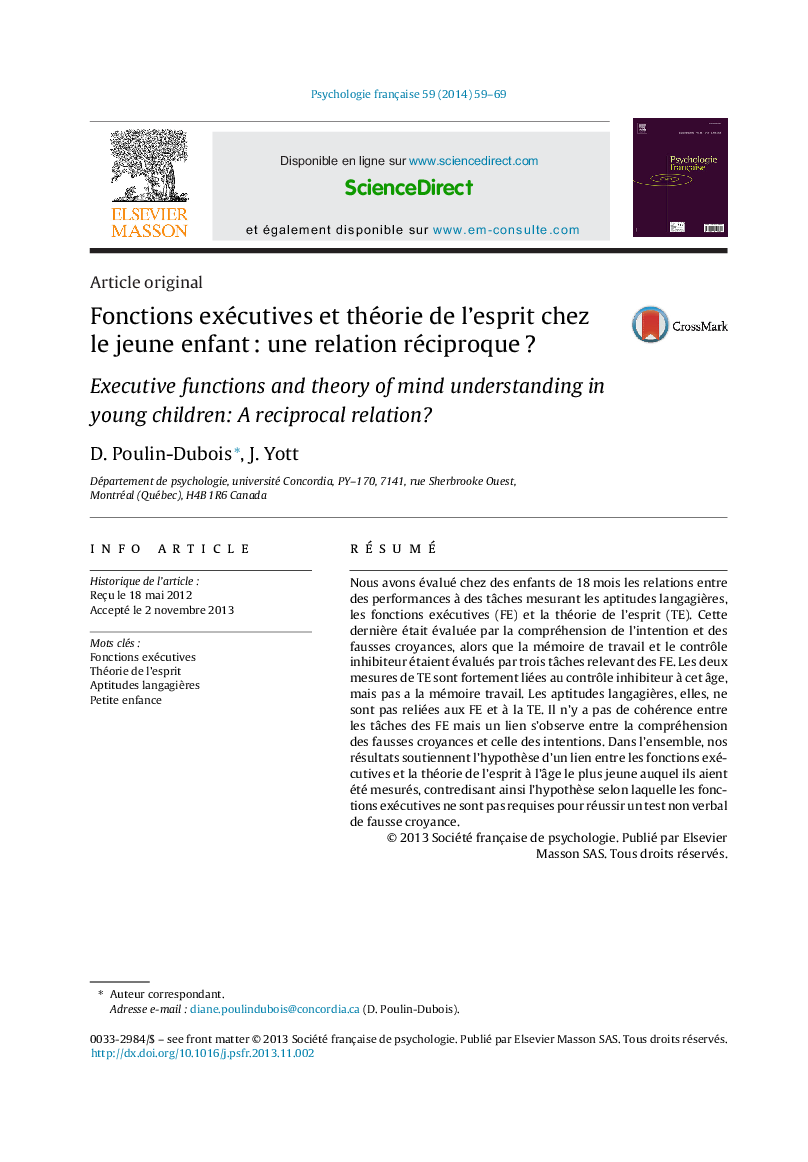| Article ID | Journal | Published Year | Pages | File Type |
|---|---|---|---|---|
| 335410 | Psychologie Franaise | 2014 | 11 Pages |
RésuméNous avons évalué chez des enfants de 18 mois les relations entre des performances à des tâches mesurant les aptitudes langagières, les fonctions exécutives (FE) et la théorie de l’esprit (TE). Cette dernière était évaluée par la compréhension de l’intention et des fausses croyances, alors que la mémoire de travail et le contrôle inhibiteur étaient évalués par trois tâches relevant des FE. Les deux mesures de TE sont fortement liées au contrôle inhibiteur à cet âge, mais pas a la mémoire travail. Les aptitudes langagières, elles, ne sont pas reliées aux FE et à la TE. Il n’y a pas de cohérence entre les tâches des FE mais un lien s’observe entre la compréhension des fausses croyances et celle des intentions. Dans l’ensemble, nos résultats soutiennent l’hypothèse d’un lien entre les fonctions exécutives et la théorie de l’esprit à l’âge le plus jeune auquel ils aient été mesurés, contredisant ainsi l’hypothèse selon laquelle les fonctions exécutives ne sont pas requises pour réussir un test non verbal de fausse croyance.
The aim of this study was to assess the specific relation between 18-month-olds’ performance on tasks measuring language skills, executive function (EF) and theory of mind (ToM). The ToM tasks included measures of intention and false-belief understanding whereas working memory and inhibitory control were assessed with three EF tasks. Expressive vocabulary was assessed with the MacArthur Communicative Development Inventory. The main findings showed that both aspects of ToM are strongly linked at this age to inhibitory control, but not to working memory abilities. Language skills were not associated with either ToM or EF abilities. With regard to inter-tasks coherence within EF and ToM, we replicated previous findings with no consistency across EF tasks but an association between false-belief and intention understanding. Overall, these findings provide evidence for a link between executive function and theory of mind at the youngest age ever tested. They also challenge the view that EF is not required to succeed on the false-belief task based on spontaneous responses.
